第43章 Chapter 7(1)
Live and Let Live
The Nation's inalienable right of self-direction and self-help is of the same nature and derivation as the like inalienable right of self-help vested in an irresponsible king by the grace of God. In both cases alike it is a divine right, in the sense that it is irresponsible and will not bear scrutiny, being an arbitrary right of self-help at the cost of any whom it may concern. There is the further parallel that in both cases alike the ordinary exercise of these rights confers no material benefit on the underlying community. In practical effect the exercise of such divine rights, whether by a sovereign monarch or by the officials of a sovereign nation, works damage and discomfort to one and another, within the national frontiers or beyond them, with nothing better to show for it than some relatively slight gain in prestige or in wealth for some relatively small group of privileged persons or vested interests.
And the gain of those who profit by this means is always got at the cost of the common man at home and abroad. These inalienable rights are an abundant source of grievances to be redressed at the cost of the common man.
It has long been a stale commonplace that the quarrels of competitive kings in pursuit of their divine rights have brought nothing but damage and discomfort to the underlying peoples whose material wealth and man power have been made use of for national enterprise of this kind. And it is no less evident, though perhaps less notorious, that the pursuit of national advantages by competitive nations by use of the same material wealth and man power unavoidably brings nothing better than the same net output of damage and discomfort to all the peoples concerned. There is of course the reservation that in the one case the kings and their accomplices and pensioners have come in for some gain in prestige and in perquisites, while in the case of the competitive nations certain vested interests and certain groups of the kept classes stand to gain something in the way of perquisites and free income; but always and in the nature of the case the total gain is less than the cost; and always the gain goes to the kept classes and the cost falls on the common man. So much is notorious, particularly so far as it is a question of material gain and loss. So far as it is an immaterial question of jealousy and prestige, the line of division runs between nations, but as regards material gain and loss it is always a division between the kept classes and the common man; and always the common man has more to lose than the kept classes stand to gain.
The war is now concluded, provisionally, and peace is in prospect for the immediate future, also provisionally. As is true between individuals, so also among the nations, peace means the same thing as Live and Let Live, which also means the same thing as a world made safe for democracy. And the rule of Live and Let Live means the discontinuance of animosity and discrimination between the nations. Therefore it involves the disallowance of such incompatible national pretensions as are likely to afford ground for international grievances, -- which comes near involving the disallowance of all those claims and perquisites that habitually go in under the captions of "national self-determination" and "national integrity," as these phrases are employed in diplomatic intercourse. At the same time it involves the disallowance of all those class pretensions and vested interests that make for dissension within the nation.
Ill-will is not a practicable basis of peace, whether within the nation or between the nations. So much is plain matter of course.
What may be the chances of peace and war, at home and abroad, in the light of these blunt and obvious principles taken in conjunction with the diplomatic negotiations now going forward at home and abroad, -- all that is sufficiently perplexing.
At home in America for the transient time being, the war administration has under pressure of necessity somewhat loosened the strangle-hold of the vested interests on the country's industry; and in so doing it has shocked the safe and sane business men into a state of indignant trepidation and has at the same time doubled the country's industrial output. But all that has avowedly been only for the transient time being, "for the period of the war," as a distasteful concession to demands that would not wait. So that the country now faces a return to the precarious conditions of a provisional peace on the lines of the status quo ante. Already the vested interests are again tightening their hold and are busily arranging for a return to business as usual; which means working at cross-purposes as usual, waste of work and materials as usual, restriction of output as usual, unemployment as usual, labor quarrels as usual, competitive selling as usual, mendacious advertising as usual, waste of superfluities as usual by the kept classes, and privation as usual for the common man. All of which may conceivably be put up with by this people "lest a worse evil befall," All this runs blamelessly in under the rule of Live and Let Live as interpreted in the light of those enlightened principles of self-help that have come down from the eighteenth century and that go to make up the established scheme of law and order, although it does not meet the needs of the same rule as it would be enforced by the exigencies of the new order in industry.